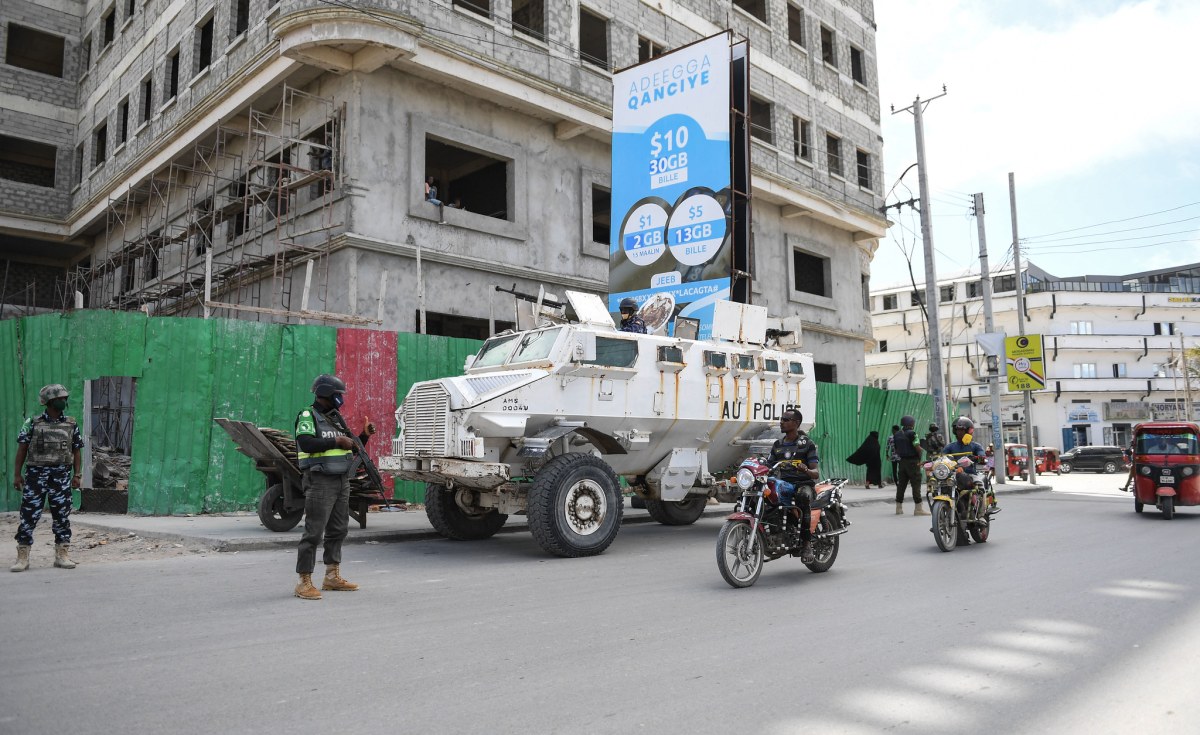President Vladimir V. Putin casts himself as the leader of a global movement rising up against domination by the United States and its allies. On Sunday, his top diplomat was bringing that message directly to Africa, hoping to turn the hunger and social strife across the continent to Russia’s advantage.
Sergey V. Lavrov, the Russian foreign minister, has made it clear that he will use the trip to try to pin the blame on the West for food shortages in African countries and to paint Russia as the continent’s faithful ally.
“We know that the African colleagues do not approve of the undisguised attempts of the U.S. and their European satellites to gain the upper hand, and to impose a unipolar world order to the international community,” Mr. Lavrov wrote in an article published in newspapers in the four countries he will visit: Egypt, Ethiopia, Uganda and the Republic of Congo.
Governments in Africa and in the Middle East have been caught in between Russia and the West since the Ukraine war began, facing Western pressure to express disapproval of the invasion while seeking to maintain access to Russian grain and other exports.
Western allies have made a concerted effort to keep them from getting too close to Russia, applying diplomatic pressure to persuade several Arab countries, including Egypt, to vote in favor of a United Nations resolution condemning the invasion of Ukraine in March. (While the Republic of Congo voted for it, Uganda abstained and Ethiopia did not participate.)
Ahead of Mr. Lavrov’s visit, Western diplomats in Cairo lobbied Egypt behind the scenes not to give the Russian minister too warm a reception.
The U.S. special envoy for the Horn of Africa, Mike Hammer, is also set to visit the region on Sunday, traveling to Egypt, the United Arab Emirates and Ethiopia for talks.
But Western attempts at counterprogramming, including editorials and social media posts, have done little to attract more public support in the Middle East. Russian disinformation and propaganda have found fertile ground in a region where many Arabs have long harbored anti-American and anti-Western sentiment stemming from the U.S. invasion of Iraq and Western support for Israel.
For months, the United States, Britain and the European Union have roundly condemned Russia for shutting down the flow of Ukrainian grain to the world through the Black Sea, laying the responsibility for global food shortages squarely at Mr. Putin’s feet.
On Friday, Russia agreed to a deal brokered by the United Nations and Turkey that would allow Ukraine to export its grain, underscoring Mr. Putin’s apparent concern for public opinion in the developing world. The next morning, however, Russian missiles hit the port of Odesa, raising questions about Moscow’s intention to stick to the agreement.
In an interview Sunday with CBS’s “Face the Nation,” Ukraine’s ambassador to the United States, Oksana Markarova, said her country would “do everything in order to perform and fulfill our part of the deal” and “feed the world.”
But she said the strikes in Odesa showed that Russia was not operating in good faith.
“Our farmers are even planting and harvesting under the fire,” Ms. Markarova said.
On Sunday, the Ukrainian Seaports Authority said it was working on restoring shipping at the ports of Odesa, Chornomorsk and Pivdennyi.
Public opinion in African countries has appeared to waver between support for Ukraine and sympathy with Russia’s justification for its invasion.
While few African leaders have publicly supported Russia, no African countries have joined American and European sanctions against Moscow.
That balancing act was apparent last month when the head of the African Union, President Macky Sall of Senegal, met with Mr. Putin. Mr. Sall begged Mr. Putin to free up Ukrainian grain but he also echoed Moscow’s argument that Western sanctions had worsened the food crisis, explicitly calling for the lifting of restrictions on exports of Russian wheat and fertilizer.
Though the sanctions do not in fact cover those commodities, shipping companies, insurers, banks and other businesses have been reluctant to do business with Russia for fear of breaking the rules or harming their reputations.
In his article, Mr. Lavrov praised African leaders for resisting Western pressure to join the sanctions against Russia. “Such an independent path deserves deep respect,” he wrote.
For Mr. Putin, the idea that Russia is leading a worldwide uprising against Western hegemony has emerged as the core of his message to global public opinion amid the war. He has repeatedly described the population of the United States and its allies as a “golden billion” that lives well at the expense of everyone else.
“Why should this golden billion, which is only part of the global population, dominate everyone else and enforce its rules of conduct that are based on the illusion of exceptionalism?” he said Wednesday at a forum in Moscow. “It mainly got to where it is by robbing other peoples in Asia and Africa.”
But Mr. Putin’s message has been complicated by the fact that Ukraine has been unable to export its grain by sea since the beginning of the war, and that Russian officials have not shied away from using the threat of starvation in developing countries as a bargaining chip.
Murithi Mutiga, the Africa program director for the International Crisis Group, said Russia had several advantages as it sought to win hearts and minds on the continent: a network of elites that studied in the Soviet Union, the “lingering loyalty” of groups it supported in the fight against apartheid in South Africa, and the fact that it supplies arms to numerous African governments.
“Moscow will, however, be disappointed if it expects more African governments to offer it full backing,” Mr. Mutiga said. “The overwhelming instinct among authorities on the continent is to remain nonaligned and to stay out of the confrontation between Russia and the West.”





















Discussion about this post